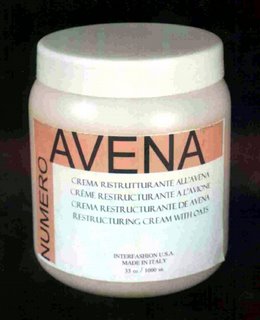TTAB Reverses Genericness Refusal of "AVENA" for ... Guess What?
Well, maybe that's not a fair question, but whoever said life was fair? The answer is hair care products. The Board reversed a genericness refusal of the mark AVENA for various hair care products, finding that the PTO failed to make the "strong showing" required to establish genericness. In re Interfashion U.S.A., Inc., Serial No. 76573122 (October 18, 2006) [not citable].

Applicant Interfashion acknowledged that its products contain, as one of many ingredients, extracts of oats, and it conceded that "Avena" is the generic Latin name for "oat." The Board observed that "the foreign equivalent of a generic English word is no more registrable than the English word itself."
The Board found the genus of goods to be hair care preparations, and the relevant public to be the public at large (since most everyone buys hair care products). The question then became "whether 'Oat(s)/Avena' is used or understood by the relevant public to refer to the genus of goods."
The Examining Attorney submitted five Internet excerpts: two showing use of the term "Avena" descriptively for beauty products other than hair care preparations; one referring to "Oat extract," but again not for hair care preparations; and two that were arguably generic uses of "Oat" ("Oat Straw Hair Rinse" and "Oat Straw Tincture Bones, Hair, Teeth & Fingernail Formula").
The Board recognized (in view of the Examining Attorney's citations) that "marks which describe a principal or key ingredient of goods or which describe the most important or central ingredient of goods ... have been held unregistrable." Here, however, on this "limited record" it had a doubt whether AVENA is generic for hair care preparations.
"... we are not convinced from the evidence of record that prospective purchasers would understand AVENA to refer to a principal or key ingredient of applicant's hair care preparations."
The Board resolved its doubt in favor of applicant, "thereby allowing any third party who believes it will be damaged to file a petition to cancel."
TTABlog comments: The Board's observation that third parties are free to petition for cancellation brings to mind two points: first, since Applicant was seeking a Supplemental Registration, third parties will not have an opportunity to oppose, but must await registration before objecting. Second, the Board's mention of the cancellation possibility suggests that this case was either a close call, or the Board thinks that the PTO could have done a better job developing the record.
More substantively, what about the application of the doctrine of foreign equivalents to a Latin word? TMEP Section 1207.01(b)(vi) says that a word from a "dead" language may be translated if "to those American buyers familiar with the language, the word would denote its English equivalent."
"Example: Latin is generally considered a dead language. However, if there is evidence that a Latin term is still in use by the relevant purchasing public (e.g., if the term appears in current dictionaries or news articles), then a Latin term is not considered dead. The same analysis should be applied to other uncommon languages."
Here, the Board glossed over the question of whether purchasers of Applicant's hair care preparations would understand "Avena" to mean "oat." [For what it's worth, I can attest that I did not realize "Avena" means "oat," and I had four years of high school Latin and many years of buying hair care products]. The CAFC's recent VEUVE CLICQUOT case (TTABlogged here) held that the doctrine of foreign equivalents applies only when it is likely that the ordinary American purchaser would stop and translate the foreign word into its English equivalent. In this case, where's the proof that the purchasing public would understand AVENA to mean "oat?" I doubt that the average American purchaser could even get through "amo, amas, amat," let alone understand an uncommon word like "avena."
Text Copyright John L. Welch 2006.




0 Comments:
Post a Comment
<< Home